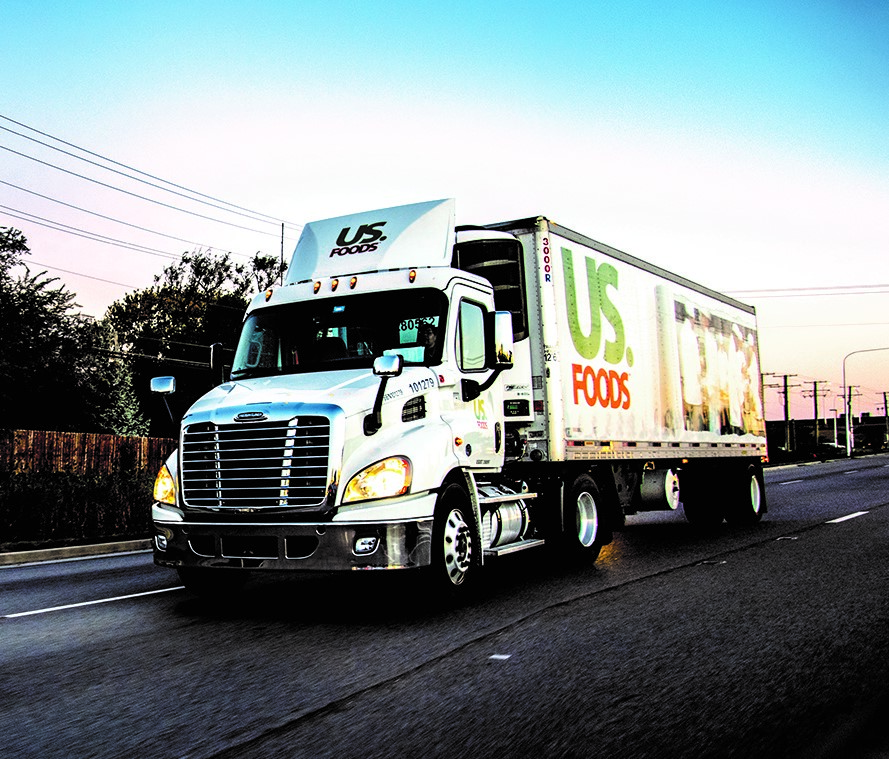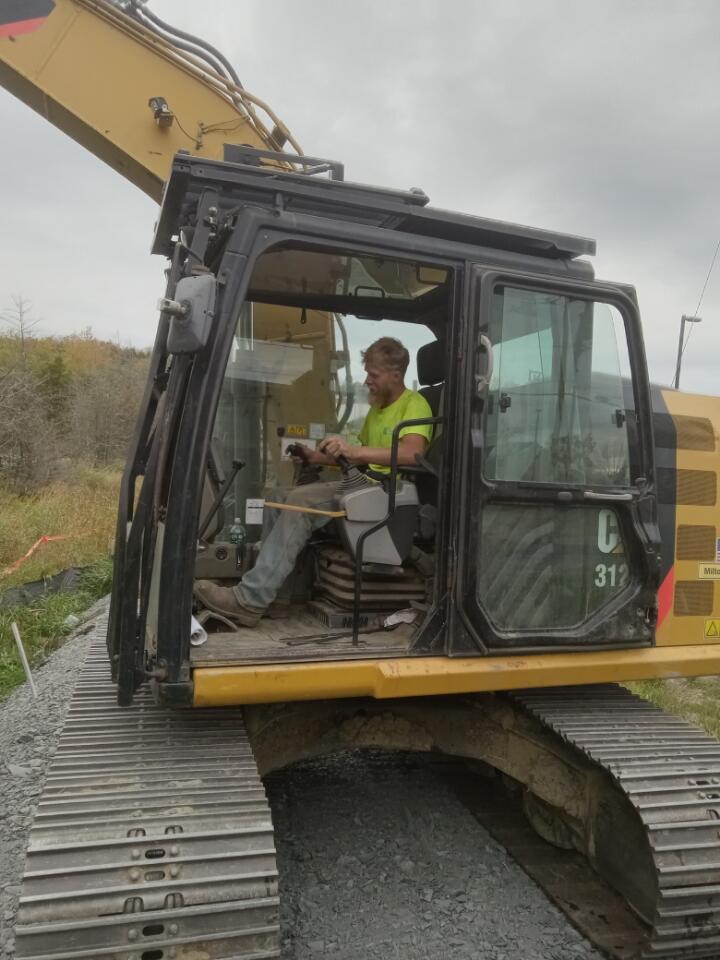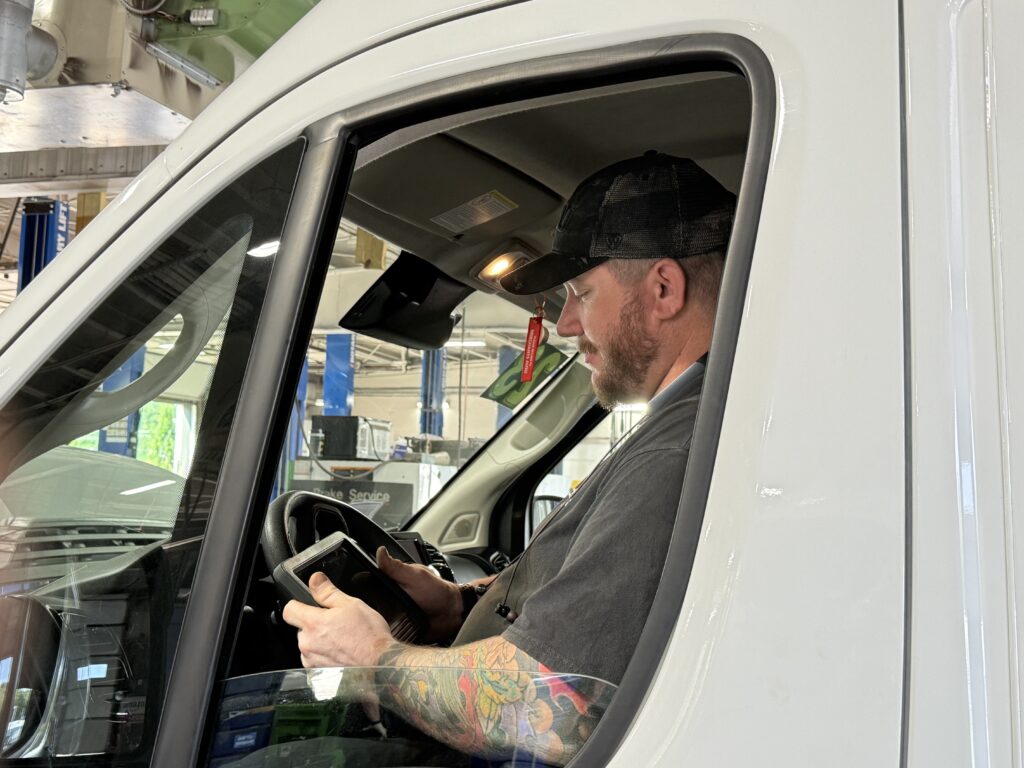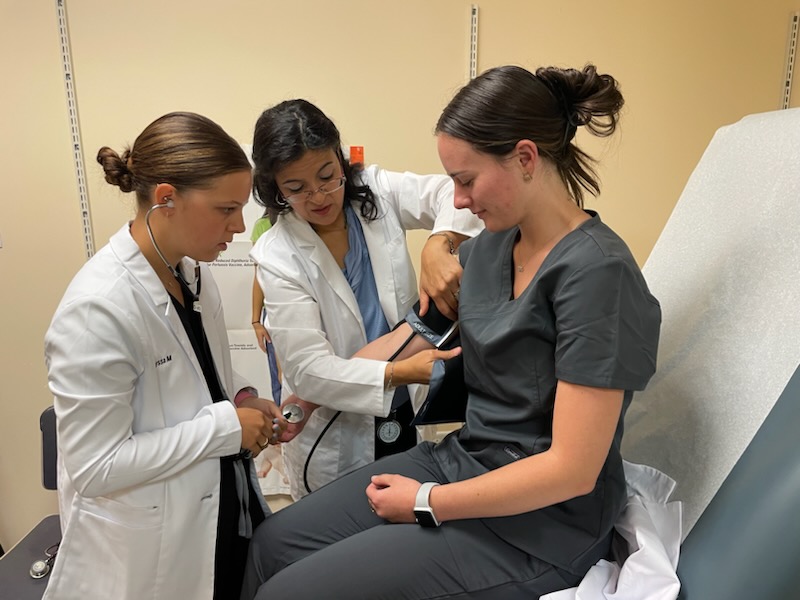Expanding Community College Apprenticeships Example: How Colleges Can Anchor New Apprenticeship Partnership Networks with Large Companies
In January 2020, a Community College System of New Hampshire (CCSNH) registered apprenticeship program manager first met with representatives from US Foods to discuss a new apprenticeship program. After multiple meetings and a pandemic pause, one and a half years later in the summer of 2021 US Foods began to enroll apprentices in their new diesel mechanics apprenticeship program. “It took a whole village to create this program,” noted Kathleen Totten, Apprenticeship Grants Coordinator with CCSNH.
US Foods has a major distribution center in southeastern New Hampshire, with a fleet of 150 trucks and an aging workforce of diesel technicians, not just locally, but also nationally throughout their 70 locations. Since there wasn’t a diesel training program nearby, the CCSNH team identified a program at White Mountains Community College (WMCC) in northern New Hampshire. Fortunately, the college offered an online diesel mechanics program delivery option to form the foundation of the apprenticeship’s technical training program. Having an online training program not only makes the training accessible for the southeastern New Hampshire location, but also for other US Foods distribution centers around the country.
Working together with company officials, college staff, and the US Department of Labor’s state director, the project team developed the three-year apprenticeship program by modifying an existing work process schedule approved by the U.S. Office of Apprenticeship. The Workforce Development office at Great Bay Community College had an established relationship with US Foods through a corporate training program. They collaborated with (WMCC) in developing non-credit diesel technology theory courses as part of the related instruction. The lab topics were incorporated into the work process schedule.
In addition to the diesel technology courses, OSHA safety training and a refrigeration course were added to provide skills for their technicians that were valued by US Foods.
In describing how to effectively partner with a business in developing a new apprenticeship program, Totten advises college peers to emphasize that apprenticeships represent “a long-term solution, part of the company’s workforce development strategy to develop talent pipelines together. Colleges can help businesses pull together all of the components and partners needed for an apprenticeship, and utilize grants to offset part of the cost of training. Apprenticeships can also help companies acquire talent upon program entry into college, because if they wait until a student graduates, students are often already spoken for.”




